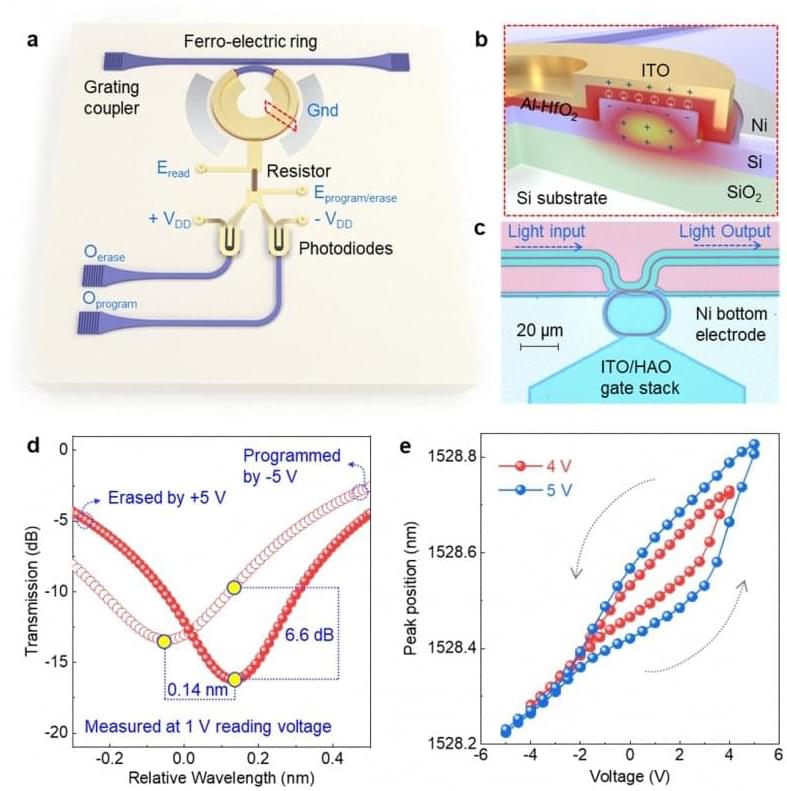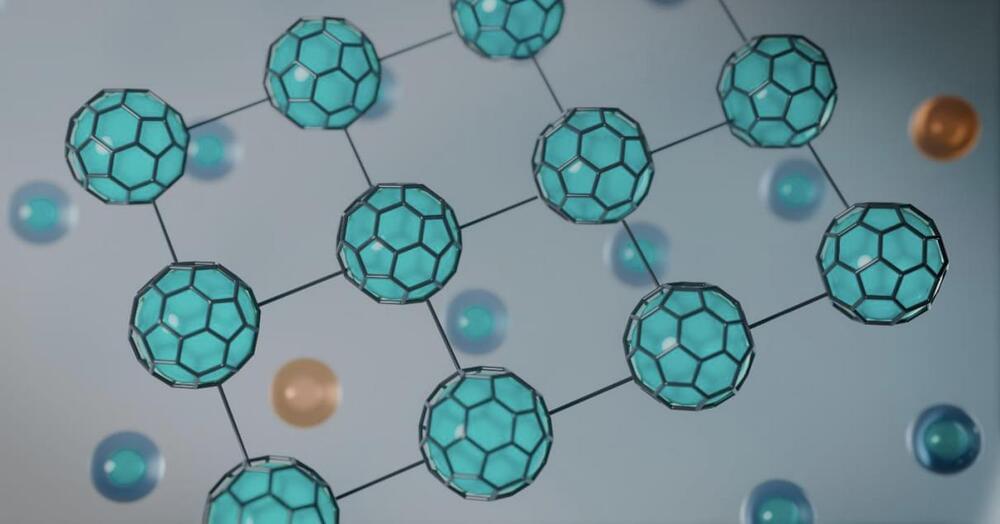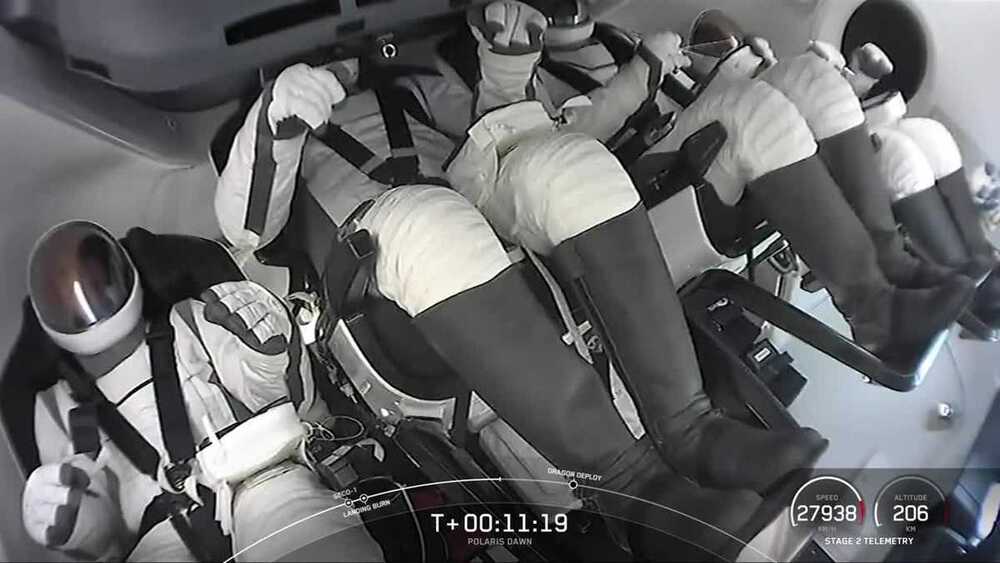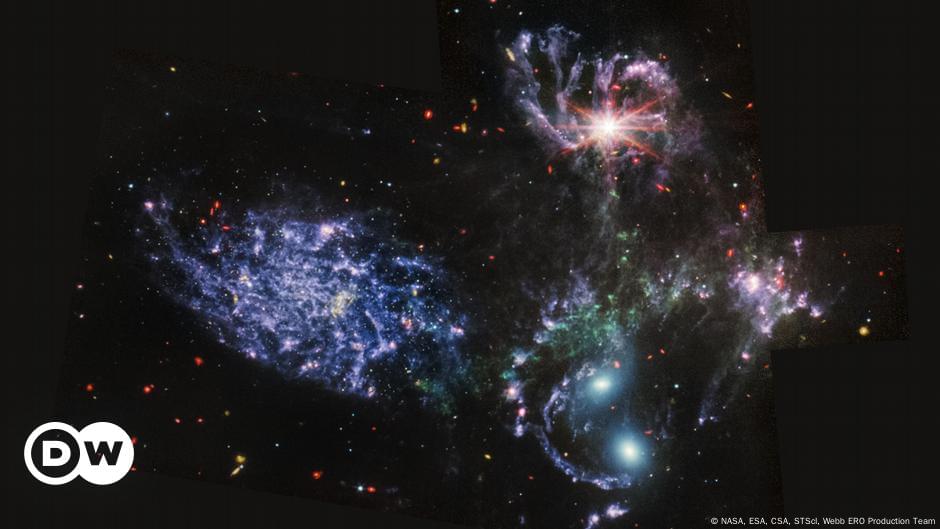Now, how can we harness it?




An international research team, led by Professor Gong Xiao from the National University of Singapore, has achieved a groundbreaking advancement in photonic-electronic integration. Their work, published in Light: Science & Applications (“Thin film ferroelectric photonic-electronic memory”), features Postdoc Zhang Gong and PhD student Chen Yue as co-first authors. They developed a non-volatile photonic-electronic memory chip utilizing a micro-ring resonator integrated with thin-film ferroelectric material.
This innovation successfully addresses the challenge of dual-mode operation in non-volatile memory, offering compatibility with silicon-based semiconductor processes for large-scale integration. The chip operates with low voltage, boasts a large memory window, high endurance, and multi-level storage capabilities. This breakthrough is poised to accelerate the development of next-generation photonic-electronic systems, with significant applications in optical interconnects, high-speed data communication, and neuromorphic computing.
As big data and AI grow, traditional computers struggle with large-scale tasks. Photonic computing offers potential, but interfacing with electronic chips is challenging. Current storage can’t handle dual-mode operations, and OEO conversion adds losses and delays. A non-volatile memory for efficient data exchange between photonic and electronic chips is essential.

According to Zander, the company’s recent work builds on a blockbuster advance that Microsoft and Quantinuum announced in the spring.
Zander writes: “In April, we announced that we’re entering the next phase for solving meaningful problems with reliable quantum computers by demonstrating the most reliable logical qubits with an error rate 800x better than physical qubits.” He adds, “In less than six months, our improved qubit-virtualization system tripled reliable logical qubit counts.”
The advance goes to the heart of a primary challenge in quantum computing today: the unreliability of physical qubits, which are prone to errors due to their highly sensitive nature. Microsoft addressed this issue by creating logical qubits, which are collections of physical qubits working together to correct errors and maintain coherence.

In a world where cancer remains a formidable foe, a glimmer of hope has emerged for those battling non-small cell lung cancer. A recent analysis by researchers at the Johns Hopkins Kimmel Cancer Center has unveiled a potential paradigm shift in treatment strategies that could significantly improve patients’ chances of survival.

The historic Polaris Dawn mission, which is being piloted by a New Hampshire man, launched at 5:23 a.m. Tuesday after an initial launch for 3:38 a.m. was delayed due to unfavorable weather conditions.
The mission pilot is Scott Poteet, who is from Stratham. He is joined by shuttle commander Jared Isaacman and mission specialists and SpaceX engineers Sarah Gillis and Anna Menon.




Today’s computers reach their physical limits when it comes to speed. Semiconductor components usually operate at a maximum usable frequency of a few gigahertz – which corresponds to several billion computing operations per second. As a result, modern systems rely on several chips to divide up the computing tasks because the speed of the individual chips cannot be increased any further. However, if light (photons) were used instead of electricity (electrons) in computer chips, they could be up to 1,000 times faster.
Plasmonic resonators, also known as “antennas for light”, are a promising way of achieving this leap in speed. These are nanometre-sized metal structures in which light and electrons interact. Depending on their geometry, they can interact with different light frequencies.
“The challenge is that plasmonic resonators cannot yet be effectively modulated, as is the case with transistors in conventional electronics. This hinders the development of fast light-based switches,” says Dr. Thorsten Feichtner, physicist at Julius-Maximilians-Universität (JMU) Würzburg in Bavaria, Germany.